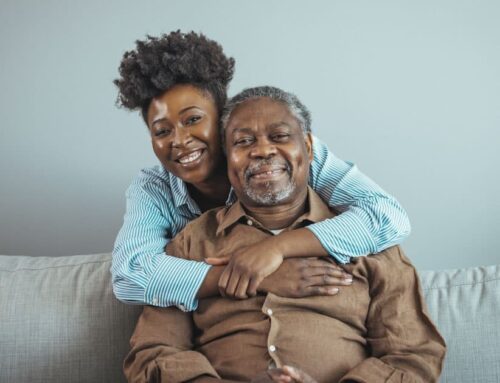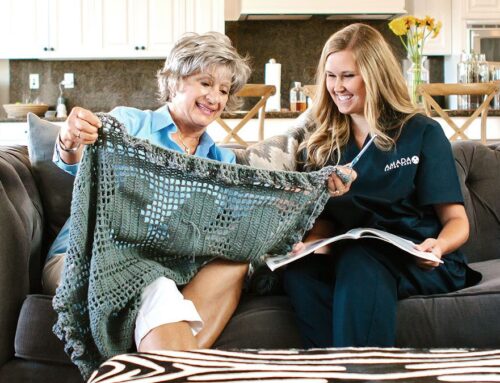To everything, there is a season – and if you are a senior aged 65 or older this includes pre-planning your legacy with care because it’s never too early or late to consider your final arrangements. It might seem strange to talk about memorial planning while many seniors and their families are celebrating the winter holidays. Yet, having a memorial plan in place can be the greatest gift that elderly grandparents and aging parents can give their families as it will relieve them of some worry and stress knowing your wishes for final arrangements and preserving your legacy.
The Importance of Pre-Planning Your Memorial
There are several compelling reasons to implore aging parents to pre-plan their funeral. Firstly, it offers them an empowerment in deciding their end-life desires, which can significantly ease death-related anxiety and uncertainty that, if unchecked, can be emotionally overwhelming. Secondly, pre-planning facilitates saving on time and money; a last-minute scramble to make funeral arrangements can be avoided if senior parents and other senior loved ones have already pre-planned. This is particularly crucial if your aging parents or elderly grandparents have health challenges or limited assets.
Having conversations and putting plans in place also helps seniors feel comfortable and secure with how they will be remembered. To help you get started, here are six things every senior should know about memorial planning:
-
Understand Your Senior Options for Memorial Planning
Gone are the days when memorial planning simply meant picking a burial place. Today, there are countless alternative options to traditional burial, such as cremation, green burials, or donating your body to medical science. Research each option to understand what feels right for you, factoring in your beliefs, values, and budget.
-
Memorial Pre-Planning is an Act of Financial Care
Pre-planning your funeral or memorial service can really save your family money in the long run. Costs can be locked in at today’s rates, protecting your loved ones from the inflation of funeral costs. It also allows you time to explore pricing from various funeral homes, ensuring you find the best value for your investment.
One strategy is to establish a “payable upon death” bank account and assign a reliable person who can oversee payment of anticipated funeral costs. Besides being free to create, the senior retains possession over the funds, and the allotted beneficiary can only access the resources after the senior’s demise.
This approach ensures that funds stay within the family and reduces the potential risk of loss or theft if the funeral home experiences bankruptcy or closure. Moreover, prepaid funeral agreements may not always be transferable to another funeral home. Hence, if there’s a chance that a senior may relocate later in life, prepaid funds risk getting lost if the decision is made to hold the funeral services at a different location.
Burial Benefits for Veterans
If you or a senior loved one served in the military, you may be eligible for burial in a national cemetery at no charge. Since space is limited, it’s a good idea to find out about your eligibility sooner than later. In addition, there are a variety of death benefits available to veterans outside of national cemetery burial. CLICK HERE for the VA website that provides details on eligibility and how to apply for veterans burial benefits.
-
Preserving Your Legacy for Loved Ones
Remember, your memorial serves as a chance for others to remember and celebrate your life. Think about how you want to be remembered. Do you prefer a traditional religious ceremony, a celebration of life gathering, or perhaps a more intimate family occasion? This is your narrative to shape, so don’t hesitate to get creative and personal.
-
Legal and Financial Planning
Planning goes beyond your physical memorial. Make sure your legal documents, such as your will, power of attorney, and medical directives, are up-to-date and accessible. Consult with a financial planner and estate attorney to ensure your assets and property are distributed in accordance with your wishes.
-
Sharing Your Wishes with Loved Ones
Once you’ve made your decisions, communicate your plans with your loved ones. While it might be challenging, it can provide peace of mind for both you and your family. Make sure they know where to locate all the necessary documents and arrangements when the time comes. In this AARP checklist, you will find some practical and time-sensitive steps to take when a senior loved one dies.
-
Seeking Professional Guidance
Navigating memorial planning alone can be overwhelming, but seniors don’t have to go it alone. Just as you use professional advice for medical or financial issues, there are professionals who specialize in helping you plan your final wishes. They can guide you through the legal, logistical, and emotional aspects of the process, ensuring every angle is covered and respected. Start with this advice article from the U.S. Federal Trade Commission.
Every season of life deserves attention, and that includes making final arrangements. Remember, preparing for your end-of-life wishes is actually a gift to those you leave behind—a final act of love that reduces stress and guesswork during grieving. As author Helen Keller once said, “What we have once enjoyed we can never lose; all that we love deeply becomes a part of us.” Your memorial plan can be a beautiful part of the legacy you leave and the love you shared.
“6 Things Seniors Need to Know About Memorial Planning,” edited by Michelle Flores, Amada blog contributor.



